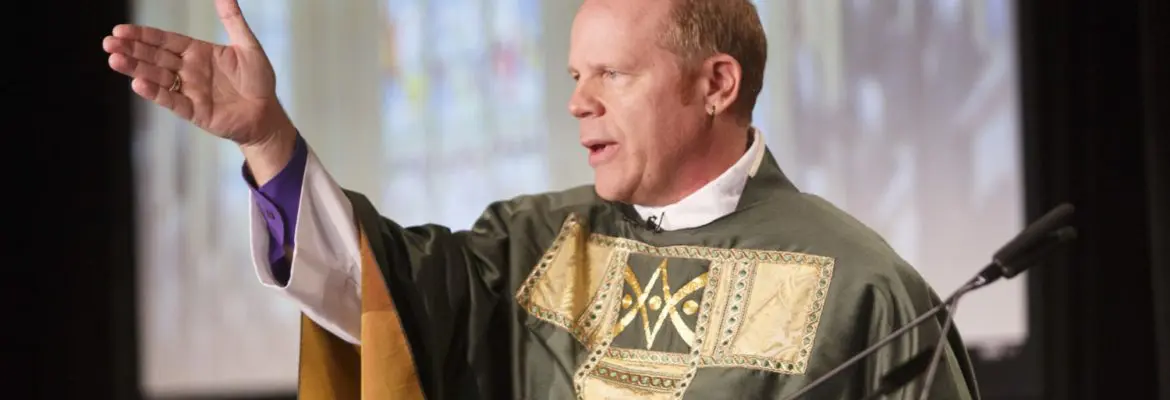
Dear Friends,
Be present. Be with.
Not very long ago, it was my turn to preside at the 12:15 p.m. Eucharist at St. James Cathedral. As is often the case, it was a busy day of meetings, both before and after the service. Prior to the pandemic, the congregation might be as many as 12; now the numbers are smaller, but they are edging upward. On this day, the service began with just the Vicar and me, but by the first reading we numbered four.
At the end of the service, the presider sometimes turns from the altar with veiled chalice in hand, bows or genuflects, and departs to the side. Sometimes the presider walks to the back to greet the assembled community. Time was pressing me to do the former, but for some reason I wound up doing the latter.
The first person drew near, quietly. Good afternoon, I said, thank you for joining us today. They hesitated for a moment, words didn’t come, but tears did. Would you like me to sit with you for a bit? I asked them. They nodded. They took a seat in one of the pews, and after I greeted the other congregant, I took my place beside them. All the busy stuff that needed to be done later in the day could wait; the more important thing was simply to be present, to be with.
That moment came to mind while I watched this week’s session of our online Thursday lunch-hour series, Tending the Soul. Yesterday’s conversation centered on what we are learning about pastoral care coming out of pandemic. It was a good conversation, and if you missed it, I would encourage you to watch it on our YouTube channel. Canon Jo Davies quoted Samuel Wells, who said that “being with” involves presence, attention, mystery, delight, participation, enjoyment, glory. In his remarks, Father Alvardo Adderley referred to Dietrich Bonhoeffer’s Ministry of Presence. Be present.
And of course, this week we have been watching 32 First Nations, Inuit and Métis representatives – chiefs, survivors, elders, knowledge keepers and youth – gather in Rome for a week of meetings with the Pope. Each delegation had time to share their experiences, the impact of more than 150 years of cultural genocide and their expectations for the Roman Catholic Church’s role in reconciliation moving forward.
Today, the Pope offered a long-awaited apology for the sins of the past. He expressed indignation for the evil that has been done, shame and sorrow for the abuses and harm that have been suffered by so many. For the deplorable conduct of those members of the Catholic Church, I ask for God’s forgiveness, and I want to say to you with all my heart: I am very sorry.
As with Archbishop Michael Peers’ apology on behalf of the Anglican Church of Canada in 1993, and with Archbishop Fred Hiltz’s apology at our last General Synod for spiritual harm caused to Indigenous siblings, we know that apology is a very important step in the journey of reconciliation for all of us. And we know that today’s moment with Pope Francis will awaken and re-awaken for many Indigenous people the trauma and grief of the past. We pray that the words of apology will sow seeds of healing and hope.
Near the close of his apology, the Pope said this: Dear friends, I have been enriched by your words and even more by your testimonies. You have brought here, to Rome, a living sense of your communities. I will be happy to benefit again from meeting you when I visit your native lands, where your families live. I won’t come in the winter! So, I will close by saying “Until we meet again” in Canada, where I will be able better to express to you my closeness. In the meantime, I assure you of my prayers, and upon you, your families and your communities I invoke the blessing of the Creator.
In a moment like this the whole Church is called to be present, to be with our Indigenous peoples in word, in prayer, in person.
Yours in Christ,
The Rt. Rev. Andrew Asbil
Bishop of Toronto